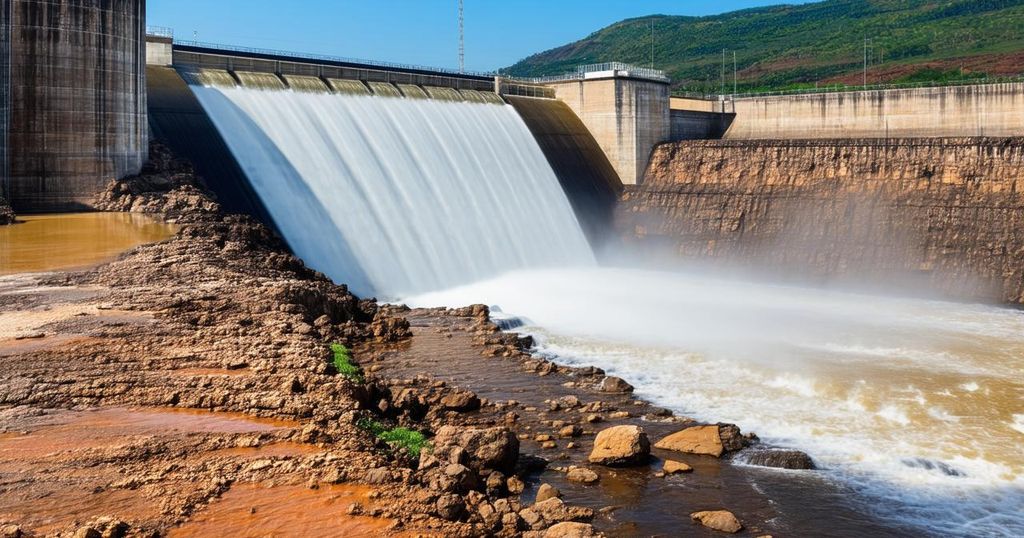Power Crisis in Zambia and Zimbabwe Due to Drought Affecting Hydroelectric Power Generation

Zambia and Zimbabwe are experiencing severe power outages lasting up to 17 hours daily, caused by drought conditions affecting the Kariba Dam, which is essential for their hydroelectric power generation. The situation highlights the need for alternative energy sources to address the current energy crisis.
Zambia and Zimbabwe are currently grappling with significant power shortages, enduring blackouts that last up to 17 hours a day. This crisis is largely attributed to severe drought conditions affecting the Kariba Dam, a crucial hydroelectric power source for both nations. The dam, recognized as the world’s largest artificial lake, has faced critical water deficits, severely hampering the ability of hydroelectric facilities to meet the energy demands of the population. As a result, the reliance on hydroelectric power has left many citizens in darkness, prompting urgent calls for alternative energy solutions. Reports indicate that the intermittent electricity supply is exerting considerable pressure on both households and businesses, impacting economic activities. Nyasha Chingono has raised awareness regarding these challenges, emphasizing the dire need for immediate interventions to address the energy crisis and explore sustainable energy sources.
The Kariba Dam, situated on the border between Zambia and Zimbabwe, plays a pivotal role in the energy sector of both countries. Historically, it has served as a primary source of hydroelectric power, catering to a substantial portion of their electricity needs. However, climatic changes, particularly prolonged drought cycles, have severely reduced water levels within this man-made reservoir, directly influencing power generation capacities. Both nations heavily depend on this water reservoir to fuel their electricity generation resources. The ongoing situation highlights the vulnerability of relying solely on hydroelectric power amidst evolving climate patterns, which necessitates considerations for diversifying energy production to mitigate similar crises in the future.
In conclusion, the current energy crisis in Zambia and Zimbabwe, triggered by drought-affected hydroelectric facilities at the Kariba Dam, is resulting in prolonged power outages that significantly disrupt daily life and economic functions. This predicament underscores the pressing necessity for both countries to seek alternative energy solutions and develop robust strategies to adapt to climatic variability, ensuring a more sustainable and reliable energy supply for their populations.
Original Source: www.france24.com






